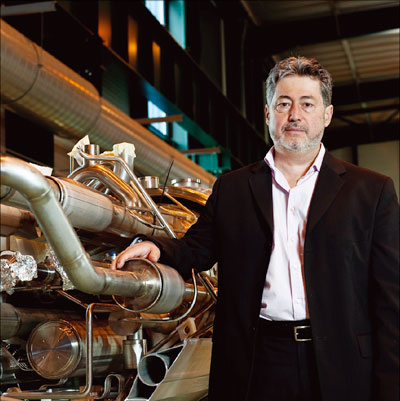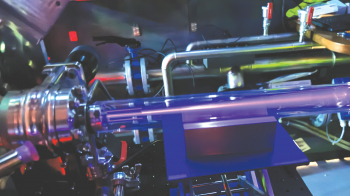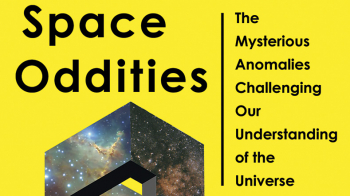Claudio Parrinello highlights CERN’s role as a catalyst for the exchange of knowledge.

If you ask 10 people working at CERN how they would describe what CERN is in a single sentence, the chances are that you will get 10 different answers.
Most people think of CERN, first and foremost, as an accelerator “factory” and a provider of facilities for the experiments. Some would state that it is a high-profile research organization, as well as a formidable training centre. Others will emphasize that it is an attractive and responsible employer. Finally, some may point out that CERN is, among other things, a strong, internationally recognized “brand”.
They are all correct in some way because CERN is a complex system with manifold activities and worldwide impact, to an extent that is sometimes hard to appreciate from an in-house perspective. Personally, I like to think of CERN as a “knowledge hub”. In fact, despite people’s different views on what CERN is, they are all part of its knowledge-exchange network.
Knowledge from universities, research institutes and companies flows into CERN through the people who come to participate in its activities. New knowledge is generated at CERN and knowledge then flows out, for example through R&D partnerships and technology transfer and through those who leave.
CERN is actually more than a hub because it plays the role of an active “catalyser” in the exchange of knowledge. As a concrete example, in February 2010 the “Physics for Health in Europe” workshop took place at CERN. It brought together more than 400 participants – both medical doctors and technology experts from the physics community. Medical experts attending expressed their appreciation that CERN had organized the workshop, acknowledging the need for such cross-cultural and interdisciplinary events, which cannot easily be organized at a national level. The value of CERN both as a provider of technologies and as a catalyst for the community was widely recognized. There are, of course, many other activities where CERN makes similar contributions towards global endeavours, for example, the Open Access initiative and the deployment of a computing Grid infrastructure in Europe.
Some of the knowledge exchanges taking place across CERN’s network are structured, explicit and therefore easy to track. This is the case, for example, with technology-transfer activities, which are typically formalized through contracts that give third parties access to CERN’s intellectual property portfolio. Other knowledge-exchange processes are tacit or informal. For example, knowledge transfer through people’s mobility from CERN towards European companies is hard to track in a systematic way.
The CERN Global Network aims to facilitate knowledge exchange across the various groups described above and to improve the visibility of partnership opportunities related to CERN’s activities. It will also enable CERN to gather data on knowledge transfer through mobility.
This Global Network will welcome former and current members of the CERN personnel (including users), companies from CERN’s member states, universities and research institutes. It will deliver a database of members and a dedicated website, providing information about partnership and knowledge-sharing opportunities (training, new R&D projects, transferable technologies, jobs etc) across the community. It will also foster the creation of special interest groups and organize events at CERN.
The scope of the Global Network is broader than a typical “alumni” association because it aims to build and reinforce links between all of the key players in the knowledge-exchange process – be they individuals or institutions. Interactions between individuals will generate a CERN-specific social and professional network, while interactions between individuals and institutions will create value in areas such as recruitment by linking job seekers with potential employers. Finally, interactions between institutions will enable the exchange of best practice in specific thematic areas.
As a last point, I would like to stress that the importance of knowledge transfer through day-to-day exchanges with the general public cannot be overemphasized. No doubt most readers of this article are routinely asked by ordinary citizens to explain what CERN is. In these circumstances we are all acting as ambassadors for CERN, endowed with the responsibility to remove misconceptions about our field and to explain the role of fundamental research as a driver for innovation.
Contributing to communication with the general public is everyone’s responsibility – the CERN Global Network will provide its members with information about the CERN-related projects that make an impact on society and that can be used to illustrate how CERN concretely delivers value to the community, in addition to its contribution to the advancement of basic science.
Facilitating and catalysing knowledge exchanges are among the most valuable benefits that we at CERN can deliver to society. A few words from George Bernard Shaw suffice to illustrate why: “If you have an apple and I have an apple, and we exchange these apples, then you and I will still each have one apple. But if you have an idea and I have an idea and we exchange these ideas, then each of us will have two ideas.”
• For more about the CERN Global Network, see http://globalnetwork.cern.ch.
Claudio Parrinello, head of knowledge and technology transfer, CERN.








